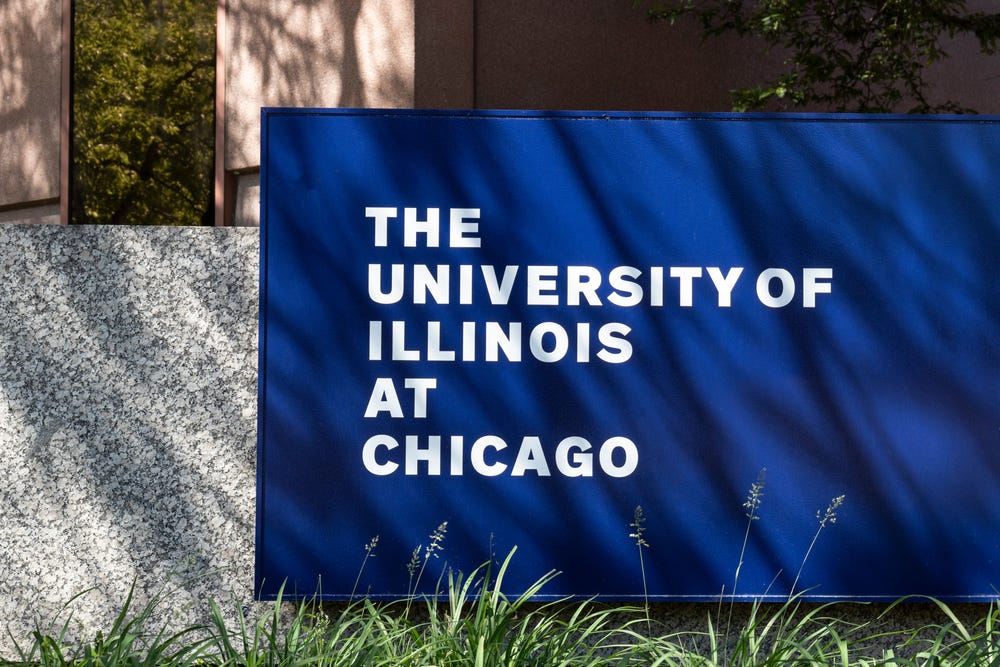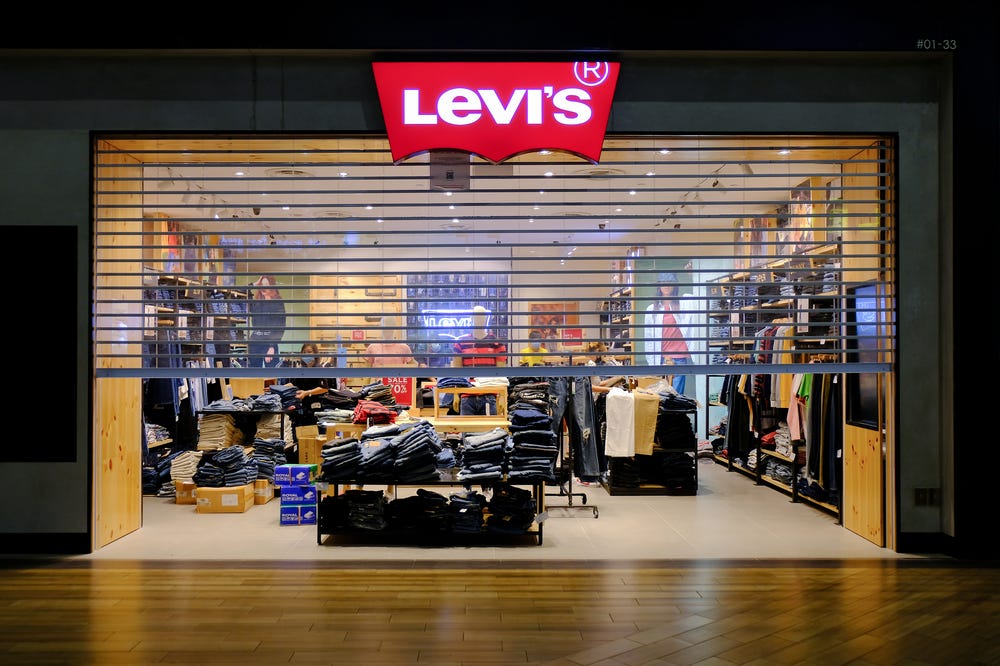E-Pluribus | February 15, 2022
The explosion of DEI in federal science grants, a law professor hits the Tolerance buzzsaw, and a Levi's executive answers a $1 million question with 'no.'
A round up of the latest and best writing and musings on the rise of illiberalism in the public discourse:
Leif Rasmussen: Follow the “Diversity”
At City Journal, Leif Rasmussen shows how the mantra of “diversity, equity, and inclusion” has made its way into the federal grant system, specifically in, science projects and research of all things. His analysis shows a 10-fold increase over the past three decades in the use of these and other similar terms from applicants looking for government dollars.
When I began graduate school, I was aware of the charges about political homogeneity and performative activism on campuses but thought that these were usually exaggerated. Having discovered the satisfaction of tutoring students in mathematical and technical subjects as an undergraduate, I wanted to make a career out of helping people acquire new competencies. I believed this to be one of the primary functions of institutions of higher education. But in the three years since beginning graduate studies, I have changed my mind about the politicization of academic life. Such terms as “diversity,” “equity,” and “inclusion,” I have come to see, are being used not only as administrative shibboleths but also in descriptions of actual scientific work—a troubling development, as the language can shield shoddy ideas. “Equity-centered” research can deflect scrutiny through the tacit insinuation that anyone who finds fault with it must be doing so out of hostility toward equity itself. It is difficult, too, to get clear definitions of “diversity,” “inclusion,” and “equity,” even from those using them in the titles of their own research projects.
[ . . . ]
I decided to do some statistical and linguistic analysis to determine how much more frequent the use of “diversity,” “equity,” “inclusion,” and similar terms were becoming. My analysis, which I published for the Center for the Study of Partisanship and Ideology, shows a precipitous increase in the use of words related to identity politics. In 1990, only 3 percent of award abstracts contained one of the following terms: “equity,” “diversity,” “inclusion,” “gender,” “marginalize,” “underrepresented,” or “disparity.” As of 2020, 30 percent of all award abstracts had at least one of these terms. The NSF directorate in which abstracts most frequently contained one of these terms was Education & Human Resources (54 percent in 2020, up from 4 percent in 1990).
Read it all.
George Will: Even by today’s standard of campus cowardice and conformity, this repulsive episode is noteworthy
From George Will at The Washington Post comes an incredible story of a law professor treated with a shameful lack of due process by his employer, the University of Illinois at Chicago, following accusations of racism and even violence by students and the school administration itself. That academia is floundering in this age of sensitivity and “inclusion” is not news, but when a law school tramples the very principles they purport to be teaching future lawyers, the incongruity merits special attention.
In his lawsuit seeking damages for violations of his constitutional rights, Kilborn says he had used this identical hypothetical for 10 years without occasioning comment, let alone campus convulsions. But it takes just a few pebbles to start an avalanche, and just a few flamboyantly brittle students to start an infection of indignation. So, Kilborn was summoned to an electronic meeting with the law school’s dean, who had been told he had “used a racial slur” on the exam. He sent a note to his class expressing regret if his hypothetical had distressed anyone.
Nevertheless, three weeks later Kilborn was summarily placed on “indefinite administrative leave,” his classes were canceled for the entire semester, and he was banned from campus. All this, because the head of UIC’s Office for Access and Equity had a conversation with a student, according to the lawsuit.
On Jan. 6, the Black Law Students Association invited people to report if they had ever been “affected by” Kilborn. The next day, about an hour into a four-hour remote electronic conversation with a member of the association, Kilborn was asked why the law dean had not shown him a student petition complaining about the expurgated racial and gendered slurs in the exam question. Kilborn said perhaps the dean thought the abusive things said about Kilborn in the petition might make him “become homicidal.” Within four days, the student was reporting that Kilborn had exclaimed that he “was feeling homicidal.”
So, the dean triggered UIC’s Violence Prevention Plan, which triggered a Behavioral Threat Assessment Team that, without communicating with Kilborn, authorized the dean — who teaches law, mind you — to impose severe punishments without a shred of due process. Soon the Office for Access and Equity notified Kilborn that it was investigating allegations that he had “created a racially hostile environment,” particularly in his civil procedure course.
Read it all here.
Jennifer Sey: Yesterday I Was Levi’s Brand President. I Quit So I Could Be Free.
When it came down to $1 million or her voice, Jennifer Sey chose her voice. After a very successful tenure at Levi’s (the jean company), Sey’s journey to the top of that company was cut short when she refused to keep quiet or backtrack on her comments and beliefs about how schools were failing children during the pandemic. Her story (via Bari Weiss) highlights the growing intersection of politics, culture and big business, and what happens to someone who refused to play along.
In the summer of 2020, I finally got the call. “You know when you speak, you speak on behalf of the company,” our head of corporate communications told me, urging me to pipe down. I responded: “My title is not in my Twitter bio. I’m speaking as a public school mom of four kids.”
But the calls kept coming. From legal. From HR. From a board member. And finally, from my boss, the CEO of the company. I explained why I felt so strongly about the issue, citing data on the safety of schools and the harms caused by virtual learning. While they didn’t try to muzzle me outright, I was told repeatedly to “think about what I was saying.”
Meantime, colleagues posted nonstop about the need to oust Trump in the November election. I also shared my support for Elizabeth Warren in the Democratic primary and my great sadness about the racially instigated murders of Ahmaud Arbery and George Floyd. No one at the company objected to any of that.
Then, in October 2020, when it was clear public schools were not going to open that fall, I proposed to the company leadership that we weigh in on the topic of school closures in our city, San Francisco. We often take a stand on political issues that impact our employees; we’ve spoken out on gay rights, voting rights, gun safety, and more.
The response this time was different. “We don’t weigh in on hyper-local issues like this,” I was told. “There’s also a lot of potential negatives if we speak up strongly, starting with the numerous execs who have kids in private schools in the city.”
[ . . . ]
Meantime, the Head of Diversity, Equity, and Inclusion at the company asked that I do an “apology tour.” I was told that the main complaint against me was that “I was not a friend of the Black community at Levi’s.” I was told to say that “I am an imperfect ally.” (I refused.)
The fact that I had been asked, back in 2017, to be the executive sponsor of the Black Employee Resource Group by two black employees did not matter. The fact that I’ve fought for kids for years didn’t matter. That I was just citing facts didn’t matter. The head of HR told me personally that even though I was right about the schools, that it was classist and racist that public schools stayed shut while private schools were open, and that I was probably right about everything else, I still shouldn’t say so. I kept thinking: Why shouldn’t I?
Read the whole thing.
Around Twitter
Credit where credit is due: via Wesley Yang, Ilya Shapiro finds support from the national legal director of the ACLU:
Jonathan Kay (a vaccine fan himself) on the extremely unprogressive attitude of some progressives towards the unvaccinated (click to read it all):
A short back and forth on “woke” between David Swerdlick, a New York Times Opinion editor, and Shadi Hamid of the Brookings Institution in response to Hamid’s tweet of his article “Why Wokeness Refuses to be Named” (click here for more also):
Finally, Part 2 of Why Colleges Are Becoming Cults, via Peter Boghossian:










